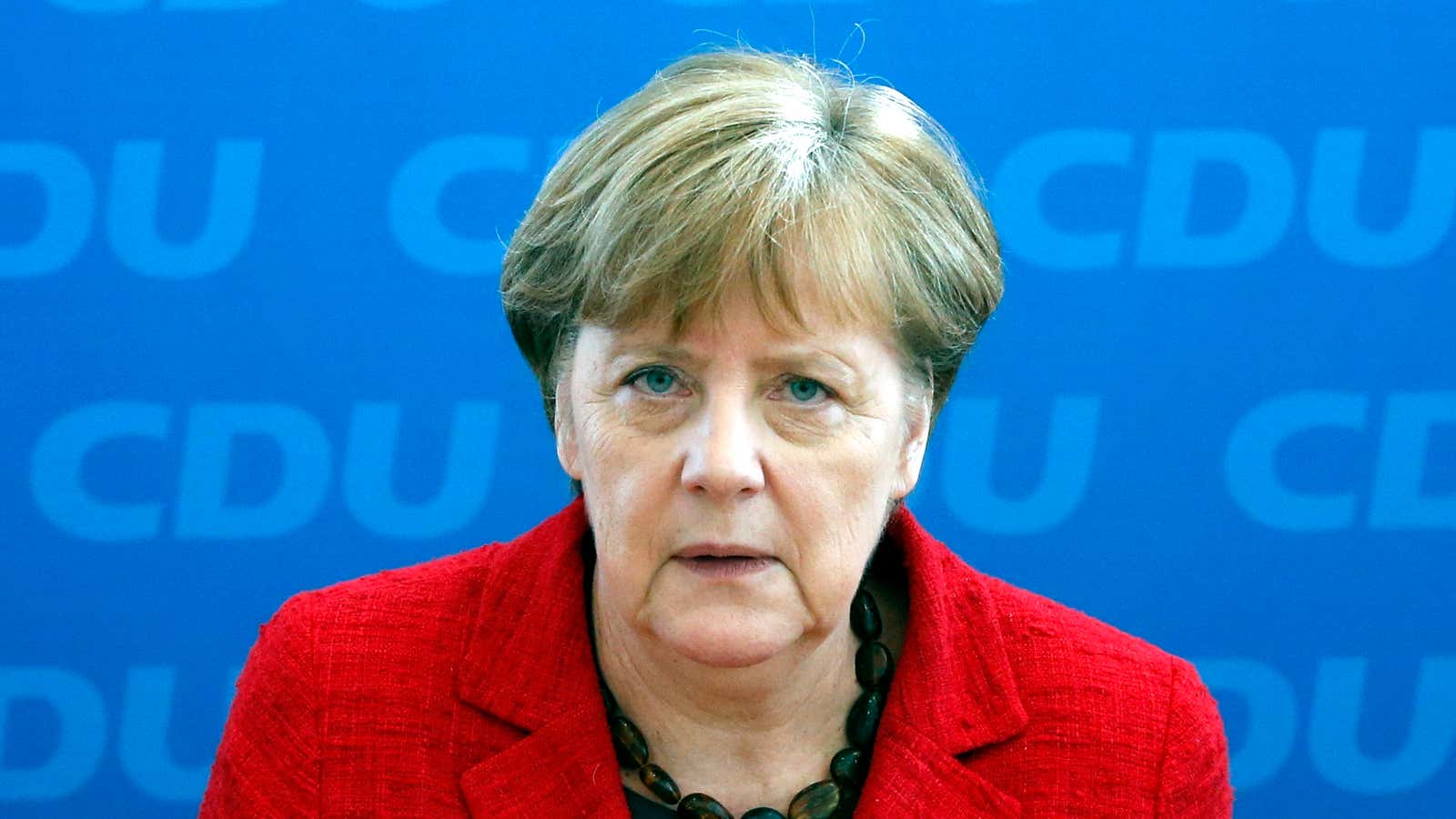Some people explain Donald Trump’s meteoric rise as the resentful product of Americans left behind by economic policy, particularly trade. Others see his appeal as the fruition of the right’s barely veiled racial-identity politics.
In fact, it takes a cocktail of those trends to fuel Trump’s campaign.
Consider his rhetoric on trade. It tends to center on China and Mexico, and involve characterizations of their “cunning” leaders manipulating US politicians and their own currencies to take American jobs away. Trump also has an anachronistic love of bashing Japan for similar policies.
But there’s another country with an economy that’s doing much better than Japan’s, with highly skilled labor that’s the envy of the developed world, and it’s pursuing its own aggressive trade policies: Germany.
So why doesn’t Trump ever complain about cunning Germans taking American jobs? After all, the US has a bigger trade deficit with Germany than with Japan or Mexico:
And Germany is arguably a far more pressing problem than any of the countries that Trump likes to name-check: The Japanese economy is a poster-child of stagnation and is running an aggregate trade deficit despite its reform efforts; a significant portion of Mexican trade supports the US industrial base; and China has actually started manipulating its currency to make it stronger it as it fights its own economic slowdown:
Germany, however, doesn’t have the kind of lower-skill industrial jobs that are going to cheap markets; it relies on hard-to-outsource advanced manufacturing that the US so desperately craves.
Critics also describe Germany as “in many ways, the China of the eurozone,” for effectively devaluing within the currency union by slow-walking real wage growth, and using state subsidies to back its industrial base. Even the staid former Fed chair Ben Bernanke has written that Berlin’s policies are ”reducing output and employment outside Germany.”
Yet you don’t hear Trump talking about cunning Germans taking America’s factory jobs. While it’s easy to believe that he hasn’t kept up the latest news in economic imbalances, it’s even easier to believe that European trade scoundrels don’t make his enemies list because they look a lot like Trump and his supporters.
When stoking populist outrage, it’s so much more effective to blame a foreigner of a different hue.
In fact, it’s telling that Trump’s most prominent criticism of German chancellor Angela Merkel didn’t concern her economic policies but her approach to Europe’s refugee crisis. Saying he was “no longer a fan” of Merkel for welcoming refugees (“strong looking guys”) to Germany, Trump told supporters that ”they’re having riots in the streets. They’re having crimes that they’ve never had before. Wait until you see the end result of what happens to Germany.”
White people other white people’s jobs? No problem. Taking in foreign refugees? That’s “a total disgrace.”




